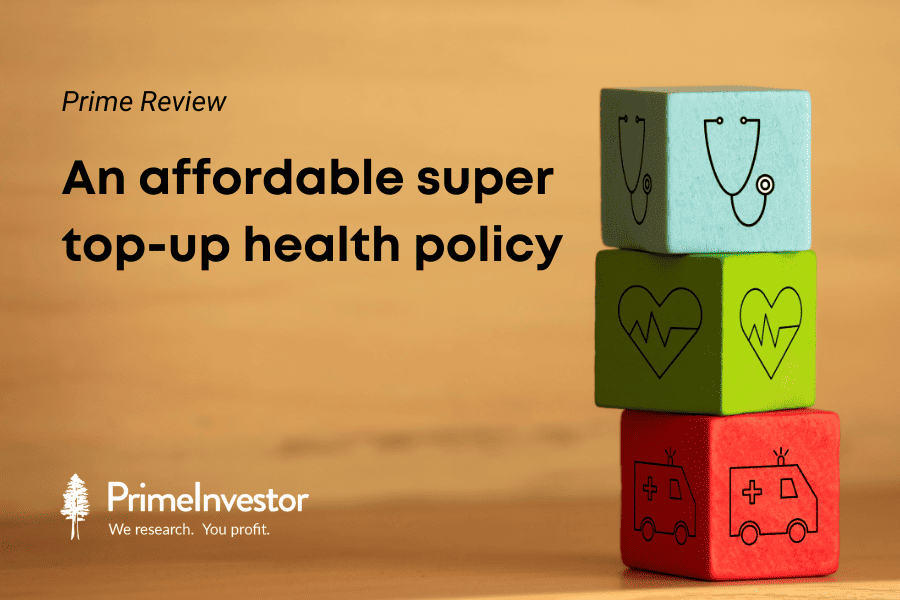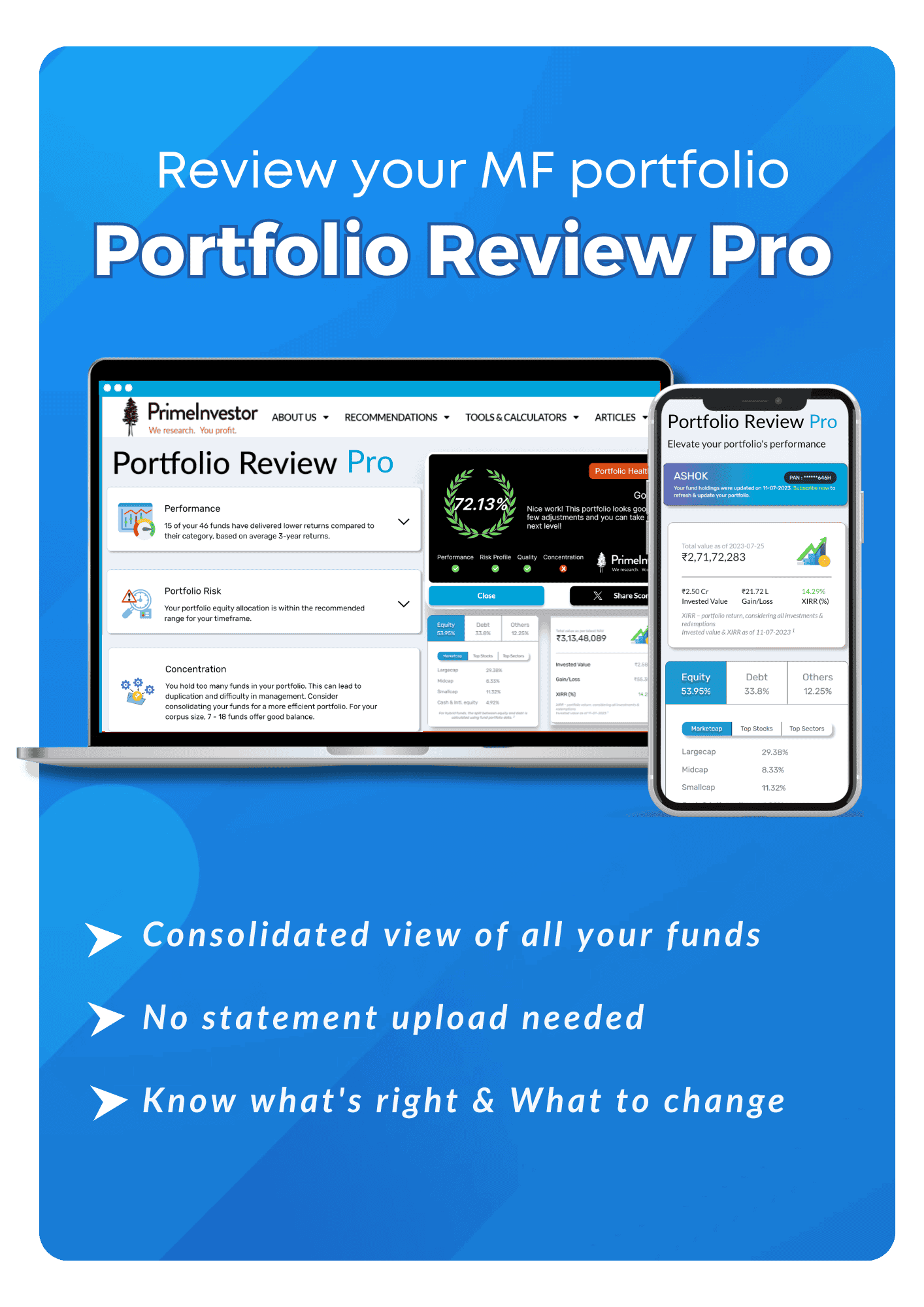A super top-up health policy is a good way to enhance your total health cover but still keep the premiums you fork out under control. Super top-up policies are part of our Prime Health Insurance recommendations, along with basic policies and senior-friendly policies.
We have, in our detailed reports, delved into basic policies so far. In this report, we’ll take up one of our super top-up recommendations – the HDFC ERGO my:health Medisure – and delve into the details. We’ll also explain the suitability of these policies, to better equip you to understand what to look for in super top-up policies and how to use them.

About super top-up policies
A quick brush-up on what a super top-up policy is, to begin with, and who should buy one.
A super top-up policy is a health insurance plan, but is slightly different from a normal or basic health plan. A basic plan can directly be used for any claim. A super top-up, however, comes into play after a certain limit (of claim value), called a deductible, is crossed. These are add-ons to a basic health insurance policy, and help increase the overall health cover. Each super top-up policy will come with its own deductible limit and sum insured.
If you already have a basic health insurance plan and want more coverage, getting a super top-up policy is a good idea. You can set the deductible to match your basic plan’s coverage instead of raising the coverage amount of your basic plan (which would entail higher premiums). Combining a basic plan with a super top-up policy can therefore be more economical compared to having just one basic plan with a higher coverage. We have explained top-up and super top-up plans in detail in this earlier article.
The policy we are looking at today is HDFC ERGO my:health Medisure Super Top-up, which is part of our Prime Health Insurance recommendations.
Policy features
First, a quick look at the basic features of this super-top up policy.
Basic features: This policy is available to anyone from age 18 to 65. Children of 91 days can be added into the policy. Once the policy is purchased, it is renewable for life. The policy provides both individual and floater sum insured options.
Deductibles and sum Insured: The deductible is among the most important features to note in a super top-up policy. For HDFC my:health Medisure, the deductible varies from Rs.2 lakh to Rs.5 lakh. The sum insured available in the policy varies from Rs.3 lakh to Rs.20 lakh.
Coverage: Similar to a standard basic health insurance plan, this super top-up policy includes coverage for hospitalisation (which refers to being admitted to a hospital for at least 24 hours for treatments or procedures) and day care treatments (these are procedures that used to require over 24 hours of hospitalisation in the past, but due to medical advancements, they are now completed within a single day). Additionally, the policy takes care of expenses incurred before hospitalisation (up to 30 days prior) and after hospitalisation (up to 60 days after).
Premiums: For an individual, and family floater plans, for a sum insured of Rs 20 lakh, and a deductible of Rs 5 lakh, the policy premium cited by the insurer, compared to a few other super top up plans is as below:
As you can see, HDFC Ergo my:health Medisure Super Top-up offers the most economical premiums. Additionally, you can renew the policy for a two-year duration and get a 5% discount on the premiums.
A highlight of the policy is that it offers constant premiums from age 61. Usually, insurers increase premiums as we age and this introduces difficulties in maintaining the policy. The premium for an individual policy for someone older than 60 years, for a sum insured of Rs 20 lakh and a deductible of Rs 5 lakh, as cited by the insurer is Rs.9,216.
Sublimits and copayments: Typically, health insurance policies safeguard their potential liabilities by incorporating sub-limit clauses, especially concerning modern medical procedures such as robotic surgeries. However, HDFC Ergo my:health Medisure Super Top-up distinguishes itself by offering an all-encompassing coverage without any disease-specific sub-limits. The policy also does not impose a general co-payment clause. However, individuals aged 80 and older need to contribute 10% of each claim amount as a co-payment.
Policy minuses
Before we get to why we recommend this super top-up policy, a note on the key limitations of this policy.
#1 Restrictions on deductible and coverage combinations
You do not have many options available to mix and match the deductible and sum insured. For example, for a deductible of Rs 4 lakh, the policy sets the maximum sum insured at Rs 16 lakh - even though the policy in general provides a sum insured of Rs 20 lakh and a Rs 5 lakh deductible. For details on what the levels of sum insured available for each deductible option, refer to this document, page 2.
However, this is not exclusive to HDFC my:health alone; super top up policies in general have limitations on what sum insured options are available for each deductible. We are listing this as a limitation for the reason that the maximum sum insured of Rs 20 lakh is available only with Rs 5 lakh deductible.
What does this mean? Effectively, this caps your maximum coverage using a basic plan plus the super top at Rs 25 lakh (Rs 5 lakh from basic policy plus the Rs 20 lakh from super top-up). While this might be sufficient to meet current medical expenses, it may not align well with the long-term healthcare needs of younger individuals. It's important to note that the cost of hospitalisation is anticipated to rise over time, which could potentially make this policy less suitable for sustained coverage as the years progress.
#2 Absence of restore benefits
Restore benefits is a feature in which the insurer replenishes the sum insured once it has been depleted due to prior claims made within the policy year. The reinstated coverage can be utilised for fresh medical conditions or by others covered under the policy in the case of family floater plans.
Typically found in basic health insurance policies, restore benefits are less crucial for a super top-up policy given its intended purpose of delivering extended coverage. However, we are listing this as a shortcoming in this policy because of its relatively limited total coverage. Had this policy included restore benefits, it would have been better suited for long-term coverage as explained in point 1 above. There are other super top-up policies, such as ICICI Lombard Health Booster, that do provide restore benefits - but as shown in the premium comparisons above, these plans are more expensive.
#3 Extended waiting periods
This policy entails a waiting period of 3 years for pre-existing diseases (PED). This duration is relatively longer compared to similar policies in the market. Some other super top-up policies, such as Bajaj Allianz Extra care plus and Star Super Surplus Insurance, have a shorter waiting period of just 1 year for pre-existing diseases.
In addition to the extended PED waiting period, this policy features a 2-year waiting period for certain specific treatments such as arthritis and knee replacement surgery. For further specifics, you can refer to this document, specifically on page 3 under the section labelled "Exclusions."
Why do we recommend this policy?
HDFC my:health finds a place in our recommendations for the following reasons:
- This policy scores in simplicity and coverage without conditions.
- It does not have a universal co-payment clause and does not impose any disease-wise sublimits, which competing policies can impose.
- The comprehensive cover is provided at a very affordable premium compared to peers, which is its biggest positive.
- The good claim settlement history by the insurer adds to the policy’s credibility.
Essentially, we list this super top-up policy in our recommendations for its simplicity and economy, which will suit those who prioritise cheaper premiums. Therefore, the policy is suitable in two main instances.
One, for those who hold health policies with a low coverage of Rs 5 lakh or lower and want to increase it but do not want a high outgo, this HDFC my:health stands out as a cost-effective choice. It can also suit those who do not have much adverse medical history in the family, so that the PED and other waiting periods will not be a big concern.
Two, for those in their 50s and 60s who haven’t yet increased their health coverage. The constant premiums above the age of 60 means it adds some predictability to health-related expenses in old age.
Note that for younger folks who want to maintain a large health cover, this policy can eventually be inadequate. This policy is also not economical for somebody who already has a basic health insurance policy of coverage more than Rs 5 lakh.
Should you decide to opt for this policy, it's advisable to buy the two-year policy term option to benefit from the premium discount.
About the insurer
HDFC Ergo is a joint venture between HDFC and ERGO International AG. It is a large private sector insurer in India and ranks 6th among all insurers in terms of total premium earned, 2nd among private insurers. The claim settlement history of HDFC Ergo has been good. The ratio of claim settlement by numbers and value at 86.41% and 85.49% respectively meets the 78.43% and 86.74% industry average. The efficiency in settlement – i.e, the proportion of claims settled within 3 months – at 95.32%, is also close to the industry average at 96.45%. All values are based on data for FY22. Please read this article to understand the claim settlement metrics.








11 thoughts on “Prime Review – An affordable super top-up health policy”
National Super Top up Policy also mentioned in Prime Investor recommendation. I found it more affordable. Any major differences / deficiencies in National’s Topup comparative to HDFC Ergo’s.?
Hello,
National Super Top Up Mediclaim Policy has a sublimit of 25% of sum insured for a number of treatments it classifies as modern treatments. Please see more details on Prospectus, Page 3. The key features of the policies are listed in the Prime Health Insurance page itself.
Thanks
Can you please review Acko Health Insurance?
Thanks
Hi, Thanks for the detailed write up.
I already have this plan as a top up since 2020. I would like to know a few things :-
1. Whether the ‘constant premium’ feature will be available for my policy also. If so, can you please clarify where in the policy document to find this?
2. Can I increase the cover on my next renewal? Anything specific that I need to keep in mind if increasing cover? Current base policy is 6 lacs & super top up 20 lacs – both floater.
I will be turning 60 next month & the next premium is due in April next year.
Thanks
Hello, to answer your questions:
1. Yes, constant premium is available for existing policies according to the policy page and premium table (Brochure, pages 4,5)
2. Yes, you can increase the cover. Although, this will be subject to underwriting and the acceptance of increase in cover is at the discretion of the insurer. Please refer to the policy wording, page 8 for more details on this.
Thanks for highlighting the policy,
Can you please throw light on the following,
1. The policy has no mention on whether it covers NRI/OCI [for treatment only in India]
2. Exclusion states “Whilst you are engaging in speed contest or racing of any kind (other than on foot), bungee jumping, parasailing, ballooning, parachuting, skydiving, paragliding, hang gliding, mountain or rock climbing necessitating the use of guides or ropes, potholing, abseiling, deep sea diving using hard helmet and breathing apparatus, polo, snow and ice sports or involving a naval military or air force operation” However surprised that even hobby/one-time activity is not covered. Is this a common practice across all providers ?
Thanks
Hello,
To answer your queries:
1. NRIs can buy health insurance policies. Unless the policy offers world wide coverage (this policy don’t), it will cover only treaments in India
2. Yes, this is a common practice. Most policies consider such activities as Hazardous or adventure sports and limit their liability by adding them under exclusions.
Hi Bipin,
Would this Super Top up policy be suitable for someone aged 59 and having a primary family floater health cover of Rs. 15 Lakhs?
Regards,
Sridhar
Hello,
This policy can be considered, however, since a basic cover of Rs.15 lakh is already in place, it is recommended to look for other policies as well with higher deductible options available as the premiums may be lower. Do check our recommended policies here: https://www.primeinvestor.in/prime-health-insurance/
Thanks
Hi PrimeInvestor team,
If someone has an employer provided health insurance (includes individual coverage plus a family floater) can a top up be used to enhance the overall coverage? Merits/demerits?
Hello,
A super top-up policy can be used to enhance your overall coverage. There are no inherent demerits to purchasing a super top-up policy along with an employer-provided health insurance policy.
Separately, with regard to the employer-provided insurances, given their linkage to current employment, it is advisable to buy a personal health insurance policy. This ensures the continuity of health coverage and the fulfilment of any waiting periods
Thanks
Comments are closed.